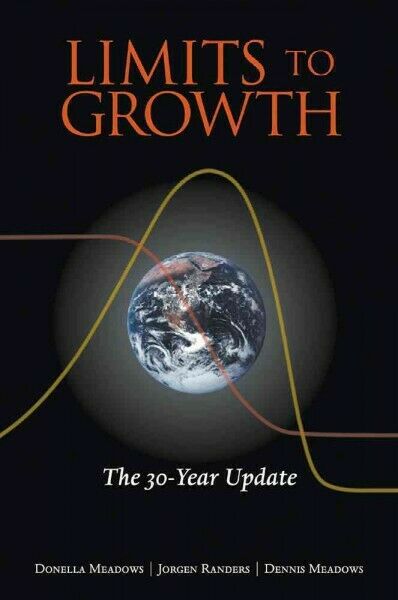Clear talk on the environment from a man at the forefront for fifty years
I watched two presentations by Dennis Meadows, one of the authors of Limits to Growth, a book I consider fundamental to understanding how humans interact with finite resources. Until I read it, I harbored hopeful but erroneous misconceptions of how technology might save us.
I apply leadership to the environment instead of technology because I understand technology, science, and how they work, not because I don’t. Few people read the book, sadly. It seems accessible to someone with a high school education, but I think most people see a few graphs and give up. I’ve read many criticisms and found not one coherent. The book stands the test of time, especially since they updated it and subsequent research, which I wrote about in my post Updates to Limits to Growth.
New videos
I watched one video of Dennis from last year and one from eight years ago. Both are accessible. I put highlights of the notes in the text. I recommend them. They’re sober, but grounded in repeatable research.
The first, from 2019, at Ulm University in Germany:
Here are highlights from his Ulm University presentation (the full pdf):
Impacts on Germany [presumably the west in general]
- Rising political power of energy exporters versus energy importers
- Slowing economic growth•Rising prices for food, goods, and services
- Domestic political change
- Changing structure of labor force
The Challenge of Man’s Future Within a period of time which is very short compared with the total span of human history, supplies of fossil fuels will almost certainly be exhausted. This loss will make man completely dependent upon waterpower, atomic energy, and solar energy for driving his machines. ….it is a transition that will happen only once during the lifetime of the human species. .. if machine civilization should, because of some catastrophe, stop functioning, it will probably never again come into existence. — Harrison Brown, 1954, p.222
The Time of Greatest Stress
- Most people assume that the major global difficulties would occur after the end to growth.
- This is not correct.
- The globe’s population would experience the most stress prior to the peak, as pressures mount high enough to neutralize the enormous political, demographic, and economic forces that now promote growth.
- We are in the early phases of that period now; you will experience more change over the next 20 years than occurred during the past 100 years.
Principles for action
- Recognize that until physical growth is halted on this planet, there is no possibility of avoiding ever rising problems.
- Develop the government, corporate, and cultural capacity for sustained long-term action, even when the necessary solutions make the of short-term problems seem worse. Remember you do not have to develop these changes within precisely the current system; as that will change anyway.
- Expect the present market system to magnify problems, not avoid them.
- Remember there are enormous delays between action and response; so take action “before it is obviously needed.â€
- Social and cultural policies will give better results than economic and technical policies. Focus on getting enough rather than on getting more.
- Do not use economic discounting methods to find solutions for problems that produce irreversible results
- Expect problems to appear suddenly and in combination.•Realize that no one fully understands these systems.
- Realize that government will be overloaded and will make mistakes.
- Forget about going back to the past conditions.
- Research and invest to increase resilience.
The second, from 2012, a presentation to the Smithsonian:

Read my weekly newsletter

On initiative, leadership, the environment, and burpees